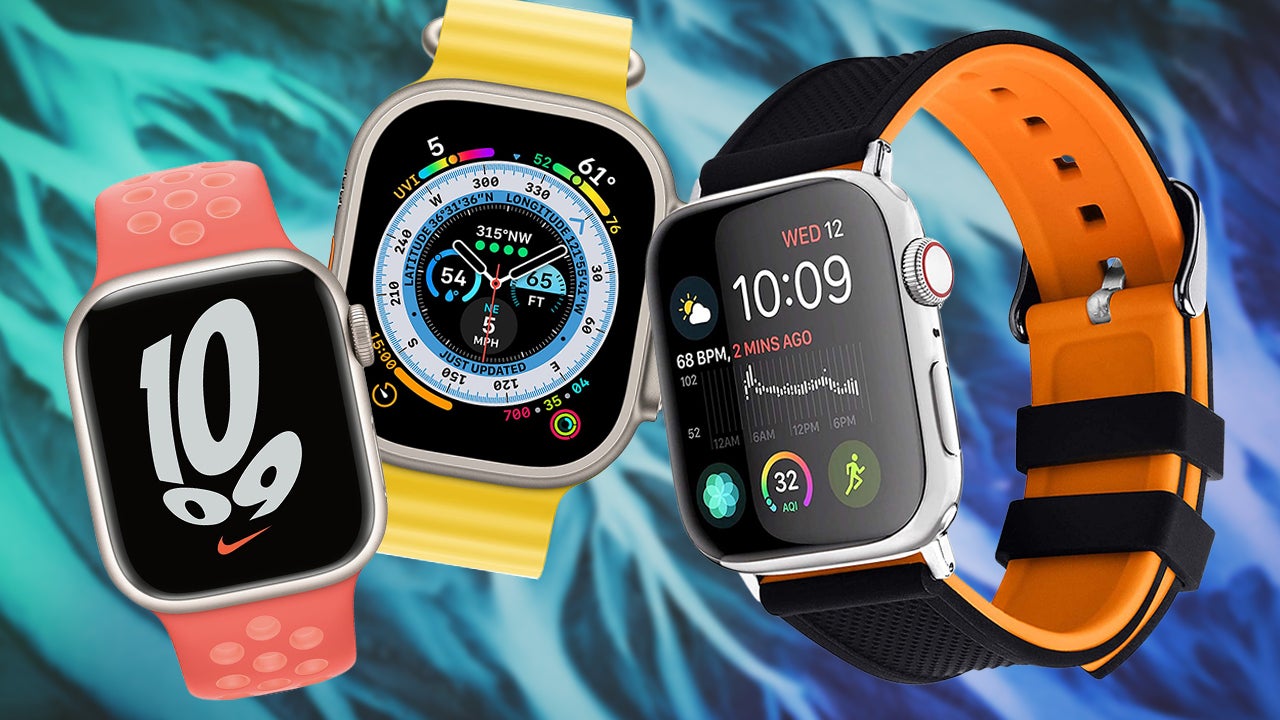Nobody likes the idea of being spied on, but the minute you connect to the internet you can kiss your privacy goodbye. It’s not a conspiracy theory: your ISP is watching you. If you want to safeguard yourself from prying eyes eager to sell your data, you need a VPN (Virtual Private Network). It's one of the easiest and most effective ways to browse the internet anonymously.
These services essentially put your internet access inside a protective railway tunnel that hides your browsing activity. Your ISP is oblivious to your activity and there's practically zero effect on your internet speeds. Better still, most VPNs allow you to connect through servers all around the world, so you can pretend you're visiting the web from another place in the world. This is super handy for tuning into TV shows and live events that might be geo-restricted in your location.
There are lots of VPN choices out there, but we’ve done the research for you. These are the best picks.
TL;DR – These are the Best VPNs for Gaming
1. ExpressVPN
Best VPN for Gaming
If you're trying to game with a VPN, you've got to be certain that it's not adding excessive latency into your connection. We've tested ExpressVPN, and it manages incredibly low latency while gaming, as well as high bandwidth (just make sure you're not choosing a server that's increasing the distance between you and a game's servers). As far as a VPN for gaming is concerned, that should be enough to make ExpressVPN a winning choice. But, it goes further than that.
ExpressVPN is reasonably priced. In fact, if you move on this now, you can take advantage of a special offer. You can get yourself 3 months of express VPN for free when you sign up to a year-long subscription. This means your monthly rate will come out at just $6.79 a month. Bargain. They also have a 30-day money-back guarantee, if you're not impressed with Express VPN, you can just cancel your membership in the first month and get your money back.
Express VPN allows you to connect five devices at once. You'll also find substantial platform support with everything from laptops and mobile devices to consoles and media players covered. All your connected devices will benefit from the option to connect to over 160 server sites in 94 countries without any bandwidth caps. Plus, ExpressVPN is a secure option with encrypted connections and a zero-logging policy. That will let you game quickly and privately.
2. Surfshark
Best Budget VPN for Gaming
We're all trying to cut costs at the moment, and seemingly needless subscriptions like VPNs might be the first on the chopping block, but Surfshark makes it cheap enough that it’s easy to take the plunge. Starting at $2.49 a month, Surfshark is an easy option that can cover a bunch of your devices. It supports Windows, Mac, Android, iOS ChromeOS, Amazon Fire TV, and even Xbox Series X/S and PS5— (it's a bit of work to get connected, but totally worth it). The best part? There's no limit on how many devices you can have connected to the service simultaneously.
You might be wary of a VPN with such a low price, but we put it through some testing and found it more than dependable enough, with low enough latency and high enough bandwidth to handle video streaming and online gaming. In fact, we could get download speeds above 100Mbps. That may not seem like much if you’re on a Gigabit connection, but it’s ample speed for most online activities short of downloading massive video games you want to play right away.
Surfshark also offer a range of other cybersecurity services as well. This includes things like 2FA and protection from spy or malware. Like Express VPN, you can get your money back within 30 days if you're not completely satisfied.
3. Private Internet Access
Best Freemium VPN for Gaming
Coming in hot on the VPN scene recently has been Private Internet Access. Not one of the more heavily marketed options out there, but they represent a great budget option for gamers. Their global server network gives you access to servers in 84 regions, including all 50 states in the US.
Plans start at $2.19 a month, this is for their two-year plan and is a similar price point to many of the other budget VPN options on the market right now. You can connect an unlimited amount of devices at once, which is always a plus in our books. The vast majority of platforms are supported, including some Smart TVs and consoles, but you'll need to check which specific models will work.
When we tested this VPN, the speed wasn't the fastest in the world. It wasn't horrendous by any means, but it's not the standout feature of this service.
4. CyberGhost
Best VPN for Streaming
If you want to balance your gaming time with your streaming time, CyberGhost is the best option for you. CyberGhost's VPN can offer latency that's low enough for gaming and bandwidth that's high enough to handle streaming. Thanks to CyberGhost's 6,900 servers in 90 countries, you can connect your devices to local servers around the world to access streaming content. And, since streaming services are consistently blocking VPN servers, CyberGhost can help you find servers that are still working for streaming.
The best plan in terms of value is their two-year plan. You'll get two months for free and the monthly rate works out to just $2.19 a month - that's even cheaper than Surfshark!
In our testing, CyberGhost was able to offer an average speed above 25Mbps, which is the recommended speed for streaming 4K video from Netflix. Of course, if your aim is to stream over a VPN, you need to be able to actually connect your streaming devices through the VPN, and that's where CyberGhost excels. CyberGhost has the usual assortment of apps for PC, Mac, iOS, Android, and web browsers. But, it also has VPN apps for smart TVs, Android TV, Apple TVs, Amazon Fire TV, and consoles (including PS5 and Xbox Series X).
5. IPVanish
Best VPN for Game Streaming
IPVanish wasn’t the best when it came to download speeds, but when it came to uploading, it was a chart-topper. During off-peak hours, it offered nearly a 1Mbps upload advantage over its closest competitor. When other VPNs began to struggle during network-congested evening hours, IPVanish stayed consistent and increased its lead, offering a greater upload speed compared to using no VPN at all!
Taken as a whole package, IPVanish covers most bases. Its app is a bit overwhelming, but it offers 256-bit encryption and zero logging to keep your connection secure. It also supports up to 10 simultaneous connections with no bandwidth limit. It’s a top contender for latency when gaming, which helps make up for its mediocre download speed.
6. NordVPN
Best VPN for Privacy
NordVPN may just be the best-known private network out there thanks to their heavy presence on YouTube. Thankfully, it’s not all marketing hype as this VPN performed well in our latency and download tests. It didn’t top the charts in speed (though it was consistently one of the top performers), but it becomes a great value when you take a closer look at its features.
NordVPN offers the standard encryption and zero-logging policy, but it takes things a step further with Double VPN IP masking. In essence, this service changes your IP address twice to make it even more difficult to track. Conversely, if you would rather have a static IP through its network, you can do that too. To prevent sensitive data leaks, enable the VPN Killswitch and take the DNS Leak Test. If downloading is more your style, you’ll be pleased to know that it’s P2P optimized.
What To Look for in a VPN
Looking for a VPN can be daunting. Even though many are very easy to set up and use, nearly all of them throw intimidating network terminology at you while all offering the same basic service. Here’s how to choose the right VPN for you.
Security
The single most important thing you should look for in a VPN is how secure it is. Anonymity is the reason to use the service in the first place, so only choose a provider that guarantees absolutely zero logging.
Take some time to read through different reviews to see what kind of vulnerabilities the VPN might have. A quick point while we're on this; if you value your anonymity, do not use a free VPN. Many of the free VPNs claim to be secure, but there's little evidence for this. Remember, if a service is free, then your data is probably the product.
Connection Quality
Many people avoid VPNs because they’re worried it will leave them with a laggy connection. While it’s true that any VPN is a middleman and can theoretically slow down your gaming, many are fast enough to have no impact at all.
Read sites like ours to find out about the connection quality at different times of the day. Be wary of any review that doesn’t disclose the time of day their test was conducted as network congestion can have a large impact on your ping.
Additional Features
Many VPNs offer additional features to differentiate themselves from the competition. Be sure to look at what, if any, extra security features the VPN offers to earn your subscription.
Private Internet Access, for example, includes a VPN Killswitch that pauses your network if you disconnect suddenly, ensuring your activity doesn’t slip out by accident. NordVPN allows you to test for DNS Leaks. These features can enhance your peace of mind and offer extra value to your monthly sub.
Most VPN services will offer these extra features, so have a think about the the things that are important to you while you're browsing. There will almost certainly be a VPN that aligns with that.
Which brings us to our next point.
What to Look For in a VPN
Before choosing a VPN, think about everything you would like to do with it. If your goal is to stream video content from different countries, you’ll need to make sure your VPN of choice will make that easy for you.
If it’s to connect your whole home through your gaming router or wireless router, you should ensure the developer supports that service and has documentation to help you get set up. Not all VPNs are created equal, and oftentimes, it’s worth sacrificing in one area to ensure that it performs in the area you need.
Joe O'Neill-Parker is a freelance contributor for IGN, covering sports and tech. Before founding O'Neill Multimedia, he worked as an editor/producer for an international audiobook production company.
Chris Coke is a tech critic that cares way too much about mechanical keyboards. Check him out at IGN, MMORPG.com, or PC Perspective. Follow him on Twitter @gamebynight.









